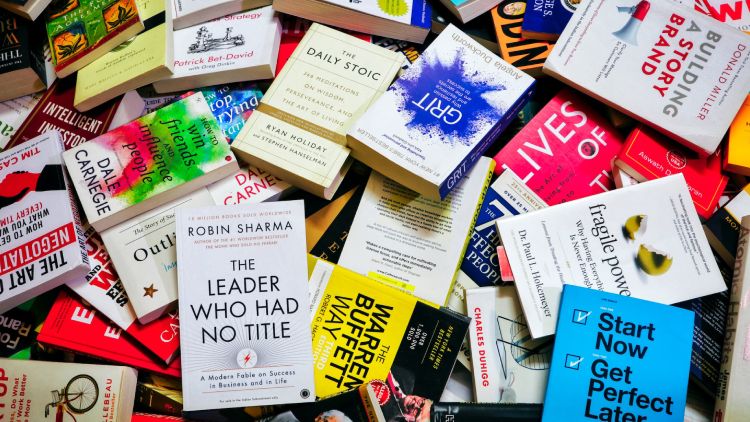When it comes to reading, there are two major genres in literature from which you can choose. These main genres are fiction and nonfiction! In this article, we’ll look at fiction vs. nonfiction and see the difference between the two!
Fiction is based on imaginary worlds and characters. Sometimes, they may be inspired by real people or events, but most of the story is completely made up. Nonfiction, on the other hand, is based on true events or real-world topics, often grounded in reality.
So, it’s safe to say that the main difference between fiction and nonfiction genres is that the former deals with imaginative stories, while the latter deals with actual events.
Fiction isn’t a good medium for acquiring knowledge and gathering information. Still, it is very entertaining to read as it serves as an escape to a completely different world filled with unique characters and an exciting plot. On the other hand, non-fiction is better when it comes to learning about the real world and acquiring knowledge of multiple topics that might help you in your own life.
While both genres offer unique advantages and experiences, many readers may not be aware of their key differences. In this article, we’ll explore the differences between fiction and nonfiction genres, their unique characteristics, and the benefits of reading both. We’ll also go through how to choose the right fiction and nonfiction books.
What is Fiction?
The fiction genre is created from a world, people, or situation that is mostly made up. Even if the story touches on certain events, say one of the world wars, or is set during a real-life period (for example, the Victorian era), the plot itself is created from the writer’s imagination.
Since fiction stories are a product of the author’s imagination, the possibilities are limitless. And so, several sub-genres make up the fictional genre!
Some popular subgenres under fiction include romance, fantasy, science fiction, mystery/thriller, young adult, horror, contemporary, and many more. There’s also historical fiction, where the story takes place in the past, around some historical event. Then there’s speculative fiction, where the story is mainly set in a supernatural or futuristic world.
So, it’s completely natural for fiction books to not just fall under one subgenre but rather more than one. For example, science fiction books can have the fantasy tag, while mystery books can have the crime and drama tag.

Benefits of Reading Fiction Books:
One of the most significant benefits of reading fiction is its ability to stimulate the reader’s imagination. Fiction writers create characters and stories from their imagination and can take readers on a journey to new and exciting worlds.
Fiction can also help to enhance empathy and emotional intelligence. By allowing readers to step into the character’s shoes, it can help readers to understand the experiences and emotions of others better. Just take Harry Potter, for example; there’s a reason why it’s one of the best-selling book series of all time!
Fiction can also provide a form of escapism, allowing readers to take a break from the stresses of everyday life. When you come home from a long day of stressful meetings, you just want to read something lighthearted to take your mind off stress-inducing things and help you relax.
Additionally, fiction can teach valuable life lessons and foster personal growth. You might not think this is true, but it actually is true!
By exploring the experiences of fictional characters, readers can learn about the consequences of different choices and actions. This can help readers to make better decisions in their own lives.
But, just like everything in the world, there are also certain disadvantages to reading fictional books.
Sometimes, finding the right fiction book that appeals to you can be difficult, especially if you have been a nonfiction reader all your life. You might also not feel educated by the writing since it’s fictional work, and depending on the series or book you want to read, it can take a while to consume as fiction books are mostly long and are part of a series of multiple books.
How to Choose the Right Fiction Books?
We mentioned there are a lot of subgenres out there, and some books fall under more than one, making it difficult to find the right book for you.
One of the easiest ways to find a suitable book to read is to narrow down the genres as much as possible.
If you have a favorite fiction author, then great! Authors like Neil Gaiman and Stephen King have written many books across multiple genres that you can get into.
And if you have a preferred subgenre, you can look at your options there. But this will still leave you with many novels to choose from.
So, the first thing you must consider while picking your next read is what makes you happy and interested.
If you like fantasy books and enjoy reading about female characters, then look for books that feature that. If you like reading romance novels, start your search with the romance genre and look at the other genre your chosen novels fall into to find the right one! If you are a history buff but don’t want to read about real events, then there are historical fiction books too for you to read!
Sometimes, you can even go with the cover and/or the blurb. Sure, there’s a saying don’t judge a book by its cover, but if it catches your eye, it just might be the book for you.
Also, make use of the Internet. We live in an age of information; there’s so much information online that you can figure out if the book you’re interested in is right for you by looking at its reviews without being spoiled about its story and plot points. Please take advantage of what we have at our very fingertips!
What is Nonfiction?
Nonfiction is the exact opposite of fiction, as it is based on real people and real-life stories, while fiction is based on the author’s imagination.
Nonfiction refers to literature and books whose contents are based on factual information!
For example, nonfiction writers are mostly known to write self-help books, a biography of influential people through the ages, and history books about past events like the industrial revolution, world war, or anything. These authors create pieces of work that are based on a true story, real-life events, and facts.
Similar to fiction, there are several subgenres of nonfiction too.
These include biographies, cooking, crafts, language, religion, self-help, and true crime, to name a few nonfiction examples. Also, like with fiction books, there are times when non-fiction books could fall into multiple subgenres.

Benefits of Reading Nonfiction Books:
Reading non-fiction can also offer a wide range of benefits. One of the most significant benefits of reading nonfiction is its ability to increase knowledge and understanding of the world.
Nonfiction works can provide insights into historical events, scientific discoveries, and cultural practices. It can also help to develop critical thinking skills.
By presenting factual evidence and information, nonfiction works can teach readers to evaluate information and make informed decisions. This can be particularly valuable in today’s world, where misinformation is often rampant.
Finally, non-fiction can be used to solve practical problems in one’s life and make informed decisions. Whether learning how to fix a car or making decisions about changing your daily routine to achieve your dream lifestyle, non-fiction works can provide readers with the information they need to succeed.
But there are also certain disadvantages to reading too much nonfiction. So what are they?
If you’ve been a fiction reader all your life, you might find reading nonfiction dry and boring initially, making it hard to focus on the writing. That’s a significant difference between fiction and nonfiction.
Also, compared to fiction books, nonfiction books can be a bit on the expensive side.
And since nonfiction deals with facts, some books are written very academically, making it hard for an average reader to understand.
How to Choose the Right Nonfiction Books?
Nonfiction books can be as difficult to choose as fiction books. Even if you know the subgenre you want to read about, you need to figure out what book in that subgenre will work for you.
If you have an author you like, you can use that as a jumping-off point. Or, if you want to read about a particular topic, that also helps you choose the right books.
For example, if you want to improve yourself and your daily routine, consider reading books on self-improvement. If you want to learn about the various influential personalities, like Martin Luther King Jr, for example, then biographies are what you should be reading!
So, when it comes to nonfiction writing, having a topic in mind is really helpful in picking the perfect book to read.
Again, the best way to find the right books to read is through the Internet. If you use a site like Goodreads, you can look at nonfiction books and see all the reviews from actual people before deciding to buy and read the book. Since you want accurate information when reading nonfiction stories, you want to look at people’s ratings so you know what you are reading will actually be of help!
Fiction vs. Nonfiction Books – Comparing The Two Genres:
The main difference between fiction and nonfiction is that the former is based on imaginative stories, like fairy tales, while the latter is focused on real people and events.
Fiction is based on the imagination of the writer with a more engaging writing style, whereas nonfiction is based on reality with writing that can be informative and straight to the point.
The great thing about fiction is that it lets you forget about reality for a few hours. You can escape into a fantasy world, read about interesting characters, and relax for some time. While reading nonfiction will help you learn about the world and its people, improve your life and daily routine, and fill your brain with knowledge about different topics.
When it gets to be too much fiction reading, you can shift to nonfiction for a dose of reality, and when you are tired of reading about real life, you can change to fiction and escape into a fantasy world.
Too much fiction can result in escapism, whereas too much non-fiction could lead to you becoming bored or in a rut.

This is why when we talk about fiction vs. nonfiction, we need to find a balance between the two genres. It’s all right to prefer one genre over the other, but sometimes change it up because there can be too much of a good thing.
That being said, it’s important to note that there is often some overlap between the genres. For example, historical fiction combines elements of both fiction and nonfiction literature, blending factual events with fictional characters and plotlines. Memoirs and autobiographies are other examples that combine elements of both fiction and nonfiction, as they are based on real-life events but are written in a storytelling style similar to fiction.
Ultimately, the choice between fiction and nonfiction comes down to personal preference and the reader’s goals. Both fiction and nonfiction are equally good, have strengths and weaknesses, and offer unique benefits.
If you want to learn new skills or gain a deeper understanding of the world, nonfiction may be the best choice. If you want to escape from reality or explore new worlds, fiction stories may be the way to go.
FAQs:
What is the Main Difference Between Fiction and Nonfiction Books?
The main difference between fiction and nonfiction books is that fiction is based on imagined or invented stories, while nonfiction is based on real-life events, facts, and experiences.
Can Reading Fiction Help Me Develop Empathy?
Yes, reading fiction has been shown to help improve empathy and emotional intelligence. This is because fiction often provides readers with insights into the thoughts, feelings, and experiences of characters who are different from themselves.
Can Nonfiction Books Be as Engaging as Fiction Books?
Absolutely! While nonfiction books may not have the same level of emotional engagement as fiction, they can still be just as engaging and compelling by providing readers with a deeper understanding of the world around them and inspiring them to learn new things.
Do Nonfiction Books Always Have to Be Serious or Academic?
No, there are many different nonfiction examples that can be informative, educational, and entertaining. Some popular nonfiction genres include memoirs, travel writing, humor, and self-help.
Can Reading Nonfiction Help Me Improve My Skills or Knowledge in a Particular Area?
Yes, nonfiction books are a great way to learn new skills, gain knowledge, and deepen your understanding of a particular subject. Whether you’re interested in science, history, business, or personal development, there is a nonfiction book out there that can help you improve your skills and knowledge.
Is it Better to Read Only Fiction or Nonfiction Books?
It is essential to maintain a balance between reading nonfiction and fiction books. While fiction can help us develop empathy and emotional intelligence, nonfiction can provide valuable knowledge and skills to apply to our lives.
Conclusion
And there you have it, a complete article on fiction vs. nonfiction! When it comes down to it, both genres have their strong points and weak points. But I am sure that after reading the entire article, you now know what fiction and nonfiction are.
By following our suggestions, you’ll figure out how to find the right books in your preferred genre with little to no difficulty.
Also, try to change it up once in a while. If you are a fiction reader, pick up a non-fiction book and vice versa. It could be just the change you need. And leave your comments, and let me know what you think about the whole fiction vs. nonfiction debate!
